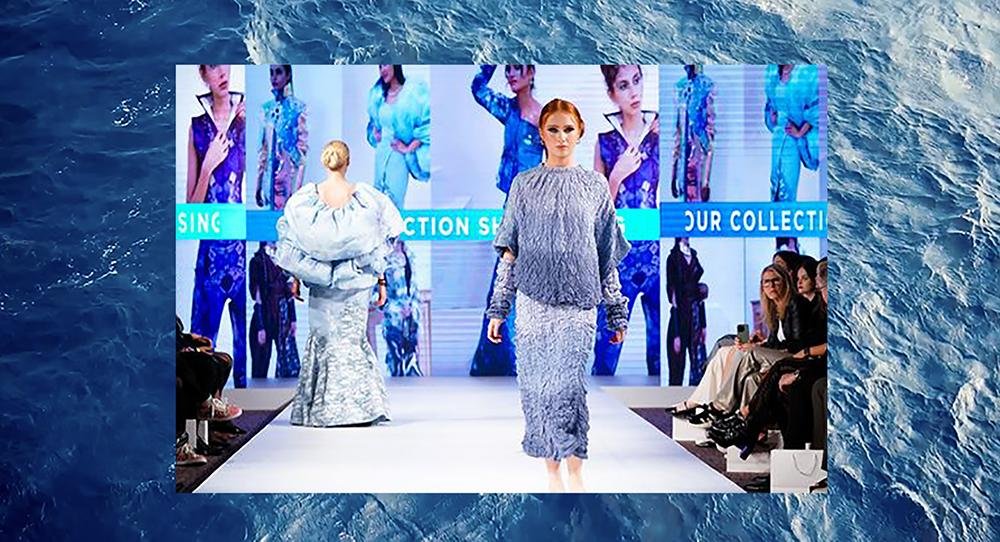Non-profit organisation Think Ocean merges eco-friendly practices with fashion by converting aquatic plastic waste into clothing, gaining support from celebrities and tackling pollution in the process.
A non-profit organisation, Think Ocean, has stepped into the fashion industry with an innovative approach that utilises plastic waste collected from aquatic environments. Led by co-founders Hugo Valdes-Vera and Noleen Mariappen, the initiative aims to tackle pollution by converting oceanic, sea, and river plastic waste into fashion. The project has gained traction with support from high-profile figures such as Davina McCall and Cat Deeley, unveiled during London Fashion Week’s House of iKons show last month.
Think Ocean has innovated a system that enables the collection of plastic waste not only floating on water surfaces but also from submerged areas such as seabeds and riverbeds. Their technology, the Waterwheel-Powered Rubbish Interceptor, allows them to recover a more significant proportion of plastic, up to six times more than traditional methods. Noleen Mariappen explained that, unlike conventional skimmers that only harvest about 15% of floating plastic, their technology reaches the substantial 85% lying beneath the surface.
The non-profit’s fashion endeavour is part of a broader mission to reduce pollution and promote sustainability by producing clothing from 100% recycled plastic. The fashion collection showcased during the House of iKons event is made entirely from this recovered material. With the backing of celebrity designer Donna Ida, an advocate for sustainable fashion, Think Ocean hopes to inspire other fashion brands to adopt their eco-friendly fabrics.
Hugo Valdes-Vera emphasised the broader impact of their initiative, highlighting the fashion industry’s position as the second-largest polluting sector globally, following the oil industry. Current figures indicate that approximately 92 million tonnes of textiles are discarded annually, representing a considerable environmental burden. The production of textiles, especially fast fashion items like denim, contributes significantly to CO2 emissions and water pollution. As per the United Nations, the fashion industry is responsible for generating 20% of global wastewater.
Through partnerships with celebrities and the use of innovative technology, Think Ocean aims to not only clean up aquatic environments but also to reduce dependence on traditional plastic production, which contributes to carbon emissions and climate change. Climate scientists have noted that these emissions, arising from the degradation of fossil fuel-derived plastics, exacerbate environmental challenges such as global warming and extreme weather events.
The charity’s efforts have also caught the attention of prominent figures in the entertainment industry. In addition to support from Donna Ida, Think Ocean is linked with Simon Cowell’s lounges.tv, a platform that facilitates engagement through live stream events, offering a new channel for both promotion and fundraising.
By combining environmental advocacy with fashion, Think Ocean seeks to drive a conversation on sustainable consumption and inspire a more responsible approach to manufacturing within the industry. While their primary focus is the improvement of environmental health through plastic removal, their striking fashion line also serves as a testament to the potential of reused materials, setting an example for future sustainable practices.
Source: Noah Wire Services





